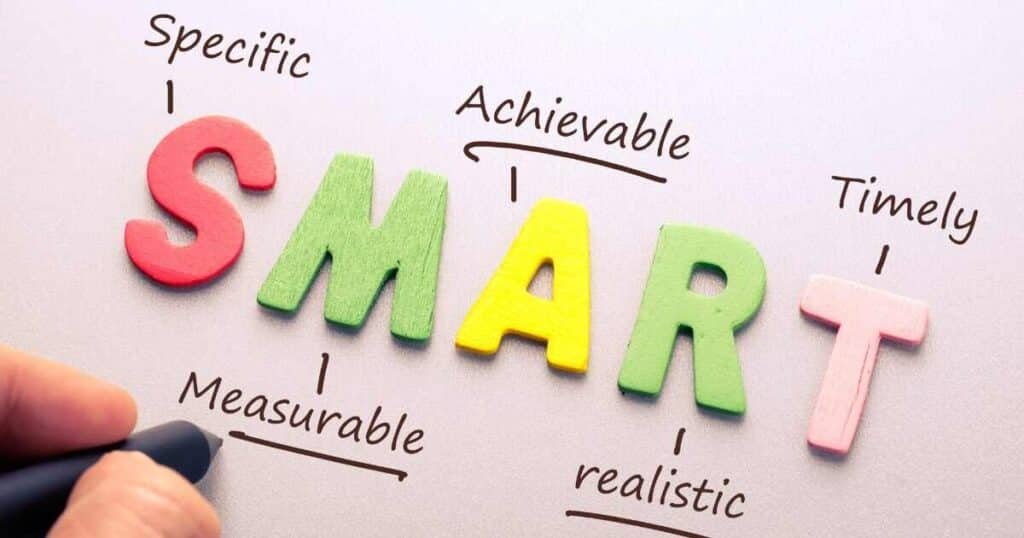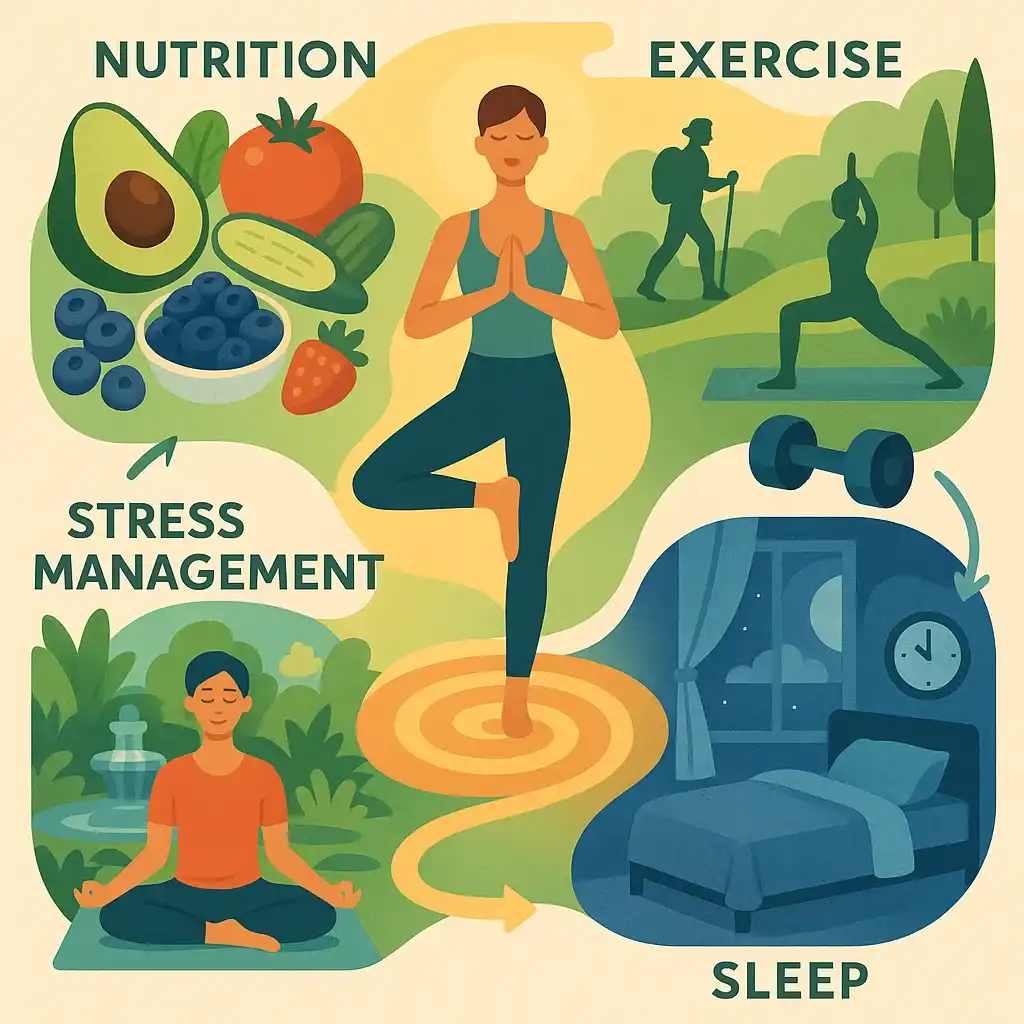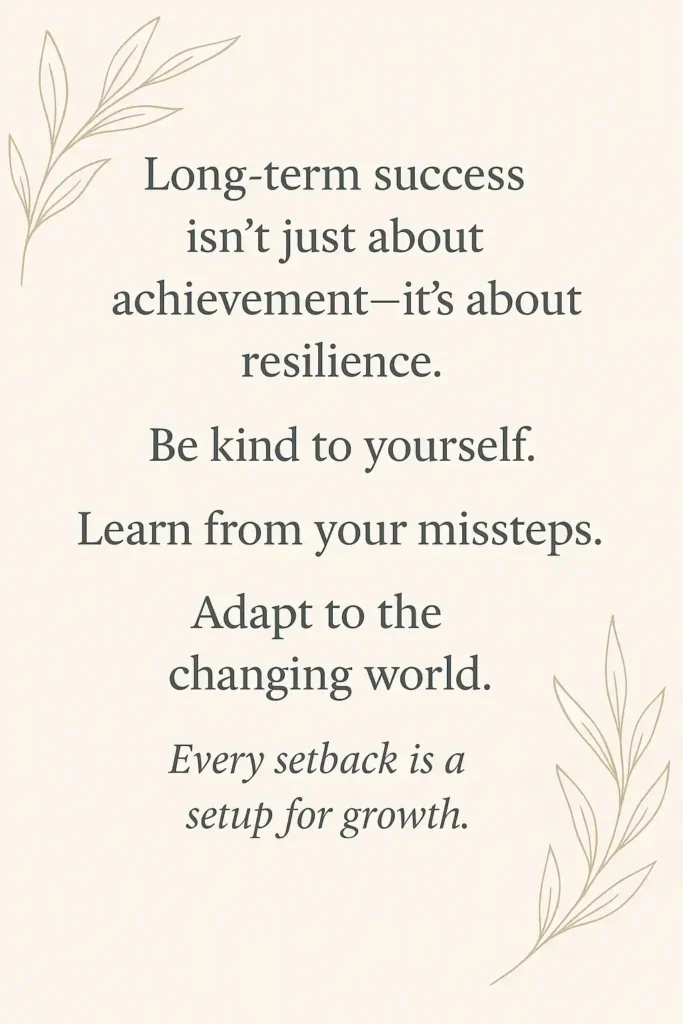Do you feel as if you’ve lost your way and have given up?
It could be neglecting your physical health, ignoring your passions and dreams, or allowing toxic relationships to consume your energy. It happens to the best of us.
Life can sometimes take unexpected turns, leading us down paths we never intended to travel.
In this blog article, we’ll discuss how to get back on track after letting yourself go to reassert life.
The consequences of letting yourself go
Before you can make a change, it’s essential to determine the consequences of letting yourself go.
First, we begin to lose our sense of value and assurance.
We may feel undeserving of love and success due to neglecting our own needs for a while.
Our energy levels also decline, resulting in persistent fatigue and lethargy.
Secondly, by letting ourselves go, we limit our potential to live a fulfilling life.
We miss out on growth since we’re too focused on pleasing others or caught up in harmful habits.
This could result in regret and contempt when we realize years have passed without anything being accomplished.
Reflect on how your physical and mental well-being have suffered. What are the consequences of your choices, and what inspired this change?
By acknowledging the gravity of the situation, you set the stage for transformation.
Now, get prepared to find your passion and purpose as you reclaim your life.
Identifying the Reasons Behind Letting Yourself Go

Life gets busy, and we prioritize the needs of others over our own. However, what are the effects of your decisions, and what inspired this alteration?
One of the main causes of self-negligence is usually a loss of discipline. Maintaining healthful conduct may be difficult with all of the responsibilities and distractions.
Without discipline for self-care, individuals may neglect their needs and develop unhealthy patterns.
Stress is another significant factor. Stress can overwhelm and hinder people.
This may be attributed to a lack of self-care, as other areas take precedence.
Constant pressure and demands can gradually erode healthy habits, rendering them subject to negligence.
Burnout is closely related to stress and can further exacerbate the tendency to let oneself go.
People risk burnout by pushing themselves to the limit without taking breaks.
Physical and emotional exhaustion may overlook personal hygiene as people struggle to get through each day.
Unhealthy habits also contribute to self-destruction.
Whether it be excessive consumption of dangerous ingredients, lack of exercise, or indulging in harmful vices, which includes smoking or immoderate alcohol intake – these behaviors trigger a downward spiral in overall well-being.
Assess the Situation and Acceptance
Perspective makes us get to know ourselves and make constructive changes.
It requires retaking a step, assessing our movements, and figuring out how they developed to our present circumstances.
However, self-reflection is only the first step. Real progress calls for spotting our flaws, owning up to our conduct, and being open to change.
Acceptance does not involve beating ourselves up over past mistakes. Instead, it’s about realizing our imperfections as humans and considering that mistakes are inevitable aspects of life.
Acknowledging our weaknesses facilitates us to flourish and improve.
Taking responsibility for our actions empowers us to move forward with a sense of purpose and determination, knowing that we can shape our destiny.
Setting Realistic Goals and Creating a Plan

Success requires sensible targets and a well-defined plan.
Utilizing SMART goals, which are specific, measurable, achievable, relevant, and time-bound.
When setting goals, specificity is critical to avoid confusion.
General purposes can cause uncertainty and randomness. Instead, define your goal precisely.
Measurable goals enable progress tracking and adjustments.
By establishing concrete metrics or milestones, you can objectively assess your achievements and make adjustments if necessary.
While it’s great to dream big, practical goals are also crucial.
Achievable objectives prevent frustration by considering resources and limitations.
Relevance to your long-term vision is imperative for purpose.
Goals that are in line with your convictions and commitments will provide a sense of direction and meaning throughout the journey.
Time-bound goals create urgency and maintain focus. Deadlines create a timeline for action.
This prevents procrastination and promotes steady progress.
These principles, when applied to goal setting, enhance the likelihood of success, maintaining clarity, motivation, and accountability.
Reinforce Healthy Habits and Routines
Establishing healthy habits is essential for well-being.
In today’s fast-paced world, it’s challenging to prioritize self-care amidst our busy schedules.
We can improve our health by maintaining eating well, exercising, sleeping sufficiently, and controlling stress.

Appropriate diets build healthy lifestyles.
Your body needs a mix of healthy foods to function correctly, like whole grains, fruits, vegetables, lean proteins, and healthy fats.
By consciously selecting our food, we can provide our systems with nourishment to endure.
Regular exercise is another essential component of establishing healthy habits.
Healthy weight maintenance not only boosts our mood but also reduces the risk of chronic diseases.
Picking a workout you like is imperative for lasting achievement and schedule.
Consistent sleep patterns promote overall health. Adequate sleep helps us relax, think better, and stay emotionally stable.
Going to bed and waking up at the exact times every day establishes a consistent sleep schedule.
Improve your sleep by prioritizing quality and eliminating disturbances.
Healthy living demands managing stress.
Unchecked chronic stress negatively affects both physical and mental well-being.
Techniques like deep breathing and meditation can reduce anxiety and promote relaxation.
Pursuing hobbies and activities can minimize stress and achieve work-life balance.
In conclusion, establishing healthy habits and routines is essential for our overall well-being.
By maintaining a balanced diet, engaging in regular exercise, prioritizing consistent sleep patterns, and adopting stress management techniques, we can take proactive steps toward healthier and more fulfilling lives.
Apply these practices in your daily routine today—small changes can make a big difference.
Making lasting changes for a better future.
Establishing new habits can be challenging, but repetition is the key to success.
Keep precising your positive behaviors until they become second nature.
Finding Motivation and Staying Consistent in Your Journey to Get Back on Track
In the journey to get back on track, retain motivation and stay consistent.
It’s essential to grasp the reasons behind your desire for change.

What fuels your drive? Is it a yearning for improved health, greater self-confidence, or more profound connections with others?
Identifying your inherent drive sources will serve as a compass to help you retain interest and be on course to achieve your objectives.
It’s common to confront obstacles, but with the appropriate mindset and techniques, you can conquer them and achieve your goals.
Fostering a positive mindset is crucial. Surround yourself with sources of inspiration that uplift and motivate you.
Learn from successful people through books, podcasts, videos, or networking.
Continue to enjoy little wins.
You can use every minute wisely. Prefer activities that assist you in achieving goals.
Creating accountability systems can also help you stay on track.
Journaling enables you to see your achievements, improve, and track your growth over time.
Friend partnerships and support groups can help the accountability and motivation to keep going.
Remember to continue to enjoy little wins.
Celebrating your accomplishments, even the small ones, helps you stay motivated in the long run.
Stay motivated and consistent by staying positive, finding inspiration, being accountable, and celebrating small victories.
People also read:
Don’t Let My Confidence Offend Your Insecurities
You become what you feed your mind: Fact or Fiction?
Celebrate Small Wins
Don’t delay your celebrations until you’ve reached your ultimate destination; instead, take the opportunity to acknowledge and reward yourself at each significant milestone along your journey.
Rewarding yourself for progress boosts motivation and keeps you focused on success. By adopting this approach, you enhance your confidence and create a cycle of inspiration concerning your goal.
Don’t underestimate the small wins. They pave the way to your bigger dreams.
Sustaining Long-term Success: Building Resilience and Preventing Future Setbacks

In order to sustain long-term success, it is crucial to build resilience and prevent future setbacks.
Building resilience is developing self-compassion and forgiveness towards ourselves.
We’re only human and prone to mistakes. Self-compassion is being kind to ourselves, not overly critical.
Learning from past mistakes helps sustain long-term success.
Instead of dwelling on failures or regretting past selections, we can choose to view errors as valuable learning experiences.
Through analyzing failures and finding areas to improve, we can make smarter choices and avoid making the same mistakes in the future.
A changing world presents new challenges and opportunities.
Flexibility and adaptability increase success in uncertain circumstances.
This involves being open-minded, seeking new knowledge or skills when necessary, and embracing innovation.
These practices turn setbacks into stepping stones for growth, not obstacles to reaching our full potential.
Time Management
Mastering the art of time management holds the potential to yield substantial benefits in your daily life. The foundation for productivity is a well-crafted daily schedule. By mapping out your day in advance, you can use every minute wisely and effectively.
Place the top tasks at the top of your to-do list. By using this strategy, prefer activities that assist you in attaining goals.
Besides your primary tasks, dedicate some time to self-improvement. This time should be reserved for personal and professional improvement. Engaging in learning, reading, and exercising can lead to a better life by boosting your knowledge, abilities, and happiness.
Find Balance and Enjoy the process
Achieving and retaining harmony is absolutely pivotal as you proceed on your journey.
The viability of your progress depends on your ability to strike an equilibrium between taking action and allowing yourself periods of rest. Schedule rest time between goals to recharge and introspect, providing you with the precious opportunity to rejuvenate and examine your trajectory.
Success isn’t solely about winning but rather about savoring the entire journey. While it might sometimes feel like everything needs to be absolutely perfect and that success should happen overnight, it’s paramount to shift your focus toward the sources of joy that exist within your life. In doing so, you’ll find that your goals are well within your grasp with every step you take forward.
Conclusion
In conclusion, getting back on track after letting yourself go is a journey filled with challenges and triumphs.
Self-neglect can lead to a loss of self-worth, fatigue, and a lack of fulfilment in life.
Identifying the reasons, whether it’s due to a lack of discipline, stress, burnout, or unhealthy habits, is the first step toward change.
Acceptance means acknowledging your imperfections and understanding that mistakes are part of life. Taking responsibility empowers you to move forward with purpose.
Setting realistic goals and creating a plan using SMART criteria (specific, measurable, achievable, relevant, time-bound) helps maintain clarity and accountability. Reinforcing healthy habits and routines encourages overall well-being.
Staying motivated and consistent in your journey involves identifying your reasons for change, fostering a positive mindset, and celebrating small victories.
Build resilience, learn from past mistakes, and remain flexible in a changing world. Time management, with a focus on efficiency and productivity, is critical to making the most of your daily routine.
Find balance and enjoy the process. Small changes can make a significant difference in your overall well-being and fulfilment.
Stay patient, stay dedicated, and watch as your life transforms for the better.
FAQ
References
5 Ways to Get a Grip When You’ve “Let Yourself Go”
Get Back on Track: 7 Strategies to Help You Bounce Back After Slipping Up